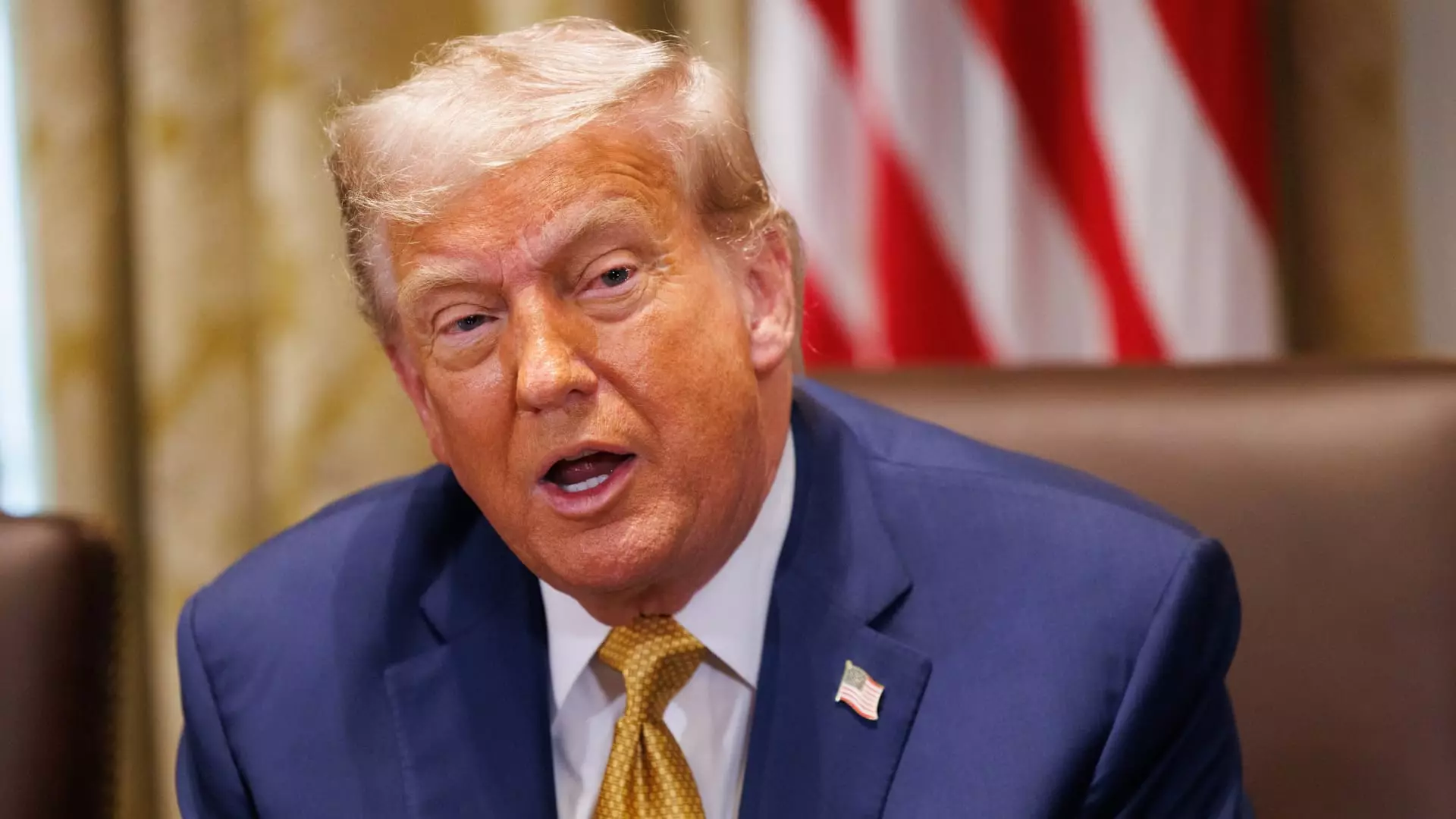President Donald Trump’s recent threat to impose up to 200% tariffs on imported pharmaceuticals appears, on the surface, to be a strategy aimed at revitalizing American manufacturing and securing national sovereignty. The rhetoric suggests a desire to bring back jobs and reduce dependency on foreign—particularly foreign-made—drugs. However, beneath this aggressive stance lies a perilous miscalculation that oversimplifies the complexities of the pharmaceutical industry and underestimates the risks posed to U.S. consumers. The idea that tariffs alone can safeguard the long-term interests of American citizens is rooted more in political bravado than in economic reality.
The reality is that the pharmaceutical sector is intricately woven into a global supply chain that ensures access to vital medicines across the country. In reality, tariffs distort these supply chains, creating artificial barriers to affordable medication. While Trump’s intention to “give people about a year or more” to adapt might sound like a pragmatic concession, it serves as a dangerous gamble—one where delay tactics merely mask the far-reaching damages tariffs could cause. These measures threaten to increase drug prices, stifle innovation, and complicate supply chains that are already fragile. Love of manufacturing prowess should not blind policymakers from the profound costs such strategies impose on American consumers, especially when millions rely on consistent, affordable medication to sustain their health.
Selective Patriotism vs. Practical Reality
Supporters of tariffs often portray them as a patriotic act—an effort to prioritize American jobs and industries. Yet, this narrative oversimplifies a nuanced ideal into a reckless gamble that could undermine the very foundation of U.S. public health. Far from being a straightforward job creator, the pharmaceutical industry is a complex ecosystem involving research, development, manufacturing, and distribution—a system that thrives on global collaboration and supply chain efficiency.
The administration’s focus on bringing manufacturing back to the U.S. overlooks the fact that many drugs and ingredients are produced overseas due to comparative advantage and cost efficiencies. Implementing harsh tariffs risks disrupting this delicate balance, potentially leading to shortages or quality compromises. It’s ironic that the same administration touting a push for American manufacturing fails to consider the heavy reliance on imports for critical medicines. This disconnect reveals a shortsighted approach that prioritizes political symbolism over tangible policy measures capable of securing genuine, sustainable growth.
The Industry’s Dilemma and Political Recklessness
Pharmaceutical companies and industry advocates recognize the inherent risks of tariffs—they understand that higher costs, regulatory uncertainty, and supply disruptions threaten U.S. innovation and patient care. Despite Trump’s claims that tariffs will spur domestic manufacturing, industry leaders have expressed caution, warning that the move could be counterproductive. The industry’s resistance underscores an important point: economic security and public health are intertwined, and to pursue protectionism without regard for innovation and supply chain integrity is to invite chaos.
Yet, the political allure of protectionism can be irresistible. It appeals to a populist desire for national self-sufficiency, even if that self-sufficiency is practically unachievable in an interconnected world. Trump’s threat to impose tariffs at a staggering 200% rate demonstrates a reckless willingness to gamble with the health and pocketbooks of millions of Americans. Such threats reveal a simplistic understanding of economic policy—ignoring the potential consequences of inflating drug prices and damaging research pipelines that could lead to breakthroughs for future treatments.
A Center-Right Alternative: Fostering Innovation without Sabotage
From a center-right perspective, the optimal strategy should focus on strengthening American competitiveness through innovation rather than punitive tariffs. Capital investment, regulatory reform, and partnership incentives are more sustainable tools for revitalizing domestic manufacturing without damaging the industry’s global position. Encouraging public-private partnerships and streamlining the regulatory pathway could promote the development of onshore production facilities that adhere to high standards of quality and safety.
The key is to advocate for pragmatic policies that preserve access to affordable medication while fostering a resilient, innovative industry that capitalizes on technological advancements and efficient supply chains. Such an approach recognizes that economic strength complements, rather than conflicts with, national security and public health. Tariffs, especially at exorbitant levels, are an impulsive and ultimately counterproductive measure—one that risks turning a strategic goal into a costly blunder.
In the end, Trump’s flirtation with 200% tariffs on pharmaceuticals exposes a fundamental misunderstanding of what truly drives American prosperity and innovation. While protectionism may garner political applause momentarily, it ultimately jeopardizes the long-term well-being of a nation that depends on a delicate balance of global cooperation and domestic ingenuity.

